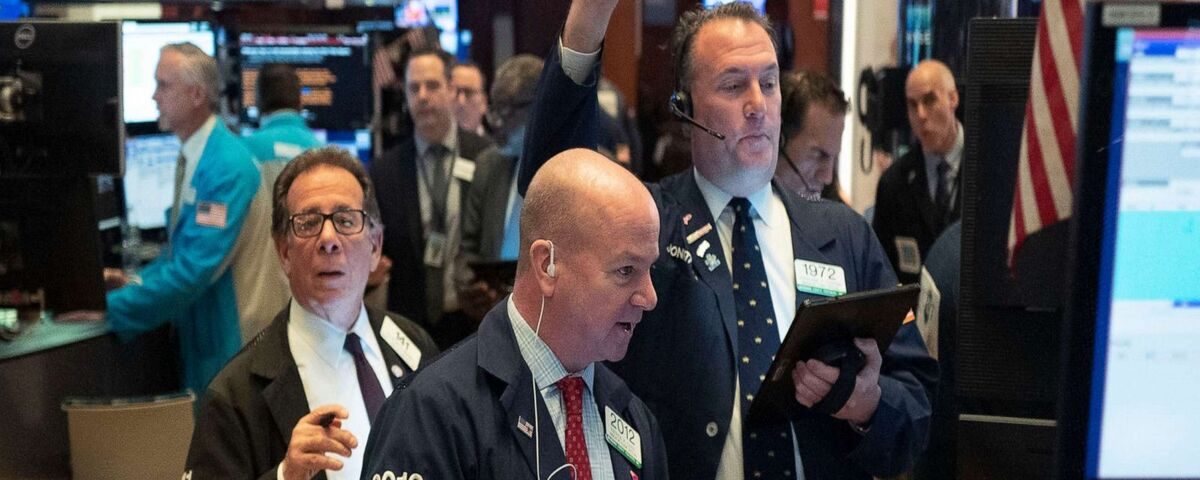
How to Interpret GDP Data: A Comprehensive Guide
27/07/2024
How Central Banks Influence the Economy: A Comprehensive Guide
29/07/2024The Role of the International Monetary Fund (IMF)
Introduction to the IMF
The International Monetary Fund (IMF) is a global financial institution established to promote international monetary cooperation, secure financial stability, facilitate international trade, promote high employment and sustainable economic growth, and reduce poverty around the world. The IMF plays a crucial role in the global economy by providing financial assistance, economic advice, and technical support to its member countries. This comprehensive guide will explore the origins, functions, structure, and impact of the IMF on the global economy.
Origins and History of the IMF
Bretton Woods Conference
The IMF was conceived in July 1944 at the United Nations Monetary and Financial Conference, commonly known as the Bretton Woods Conference, held in Bretton Woods, New Hampshire, USA. The conference aimed to establish a framework for economic cooperation and reconstruction in the aftermath of World War II. The IMF was officially established on December 27, 1945, when the first 29 countries signed the Articles of Agreement, which serve as the IMF’s charter.
Key Objectives
The primary objectives of the IMF at its inception were to:
- Promote international monetary cooperation.
- Facilitate the expansion and balanced growth of international trade.
- Promote exchange stability and orderly exchange arrangements.
- Assist in the establishment of a multilateral system of payments.
- Provide resources to member countries facing balance of payments difficulties.
Structure of the IMF
Membership
The IMF has 190 member countries, making it a nearly universal institution. Membership is open to any country that conducts foreign policy and is willing to adhere to the IMF’s rules and regulations. Each member country is represented on the IMF’s Board of Governors, which is the highest decision-making body of the organization.
Quotas and Voting Power
Each member country’s financial commitment to the IMF is determined by its quota, which reflects the country’s relative size in the global economy. Quotas are reviewed periodically and can be adjusted to reflect changes in the global economy. A country’s quota determines its:
- Financial contribution to the IMF.
- Voting power in IMF decisions.
- Access to IMF financial resources.
Voting power is weighted based on quotas, with larger economies having more significant influence in IMF decisions.
Governance
The IMF’s governance structure consists of the Board of Governors, the Executive Board, and the Managing Director.
Board of Governors
The Board of Governors consists of one governor from each member country, typically the country’s finance minister or central bank governor. The Board meets annually to discuss key policy issues and make major decisions.
Executive Board
The Executive Board is responsible for the day-to-day operations of the IMF. It comprises 24 Executive Directors, representing individual countries or groups of countries. The Executive Board meets regularly to discuss and decide on IMF policies, programs, and financial transactions.
Managing Director
The Managing Director is the head of the IMF and is responsible for the overall management and administration of the organization. The Managing Director is appointed by the Executive Board for a renewable five-year term and is supported by a Deputy Managing Director and other senior staff.
Functions and Activities of the IMF
Surveillance
One of the IMF’s primary functions is to monitor and assess the economic and financial developments of its member countries. This process, known as surveillance, aims to identify potential risks to economic stability and provide policy advice to mitigate those risks.
Bilateral Surveillance
Bilateral surveillance involves regular consultations with individual member countries to assess their economic policies and performance. These consultations, known as Article IV consultations, typically occur annually and involve discussions between IMF staff and national authorities.
Multilateral Surveillance
Multilateral surveillance involves the assessment of global and regional economic trends and issues. The IMF publishes various reports, such as the World Economic Outlook (WEO) and the Global Financial Stability Report (GFSR), to provide insights into global economic developments and policy recommendations.
Financial Assistance
The IMF provides financial assistance to member countries facing balance of payments problems, helping them stabilize their economies and restore growth. The IMF’s financial assistance is typically provided through various lending arrangements:
Stand-By Arrangements (SBAs)
SBAs are short- to medium-term lending arrangements designed to address temporary balance of payments problems. They provide financial support to member countries while implementing economic adjustment programs.
Extended Fund Facility (EFF)
The EFF provides longer-term financial assistance to countries facing structural balance of payments problems. It supports comprehensive economic reforms aimed at addressing deep-seated economic challenges.
Rapid Financing Instrument (RFI) and Rapid Credit Facility (RCF)
The RFI and RCF provide rapid financial assistance to countries facing urgent balance of payments needs due to sudden shocks, such as natural disasters or economic crises. These instruments offer quick disbursements with limited conditionality.
Poverty Reduction and Growth Trust (PRGT)
The PRGT provides concessional financial assistance to low-income countries to support their efforts to achieve sustainable economic growth and reduce poverty. The assistance is offered at low or zero interest rates and includes various lending arrangements, such as the Extended Credit Facility (ECF), Standby Credit Facility (SCF), and Rapid Credit Facility (RCF).
Capacity Development
The IMF offers technical assistance and training to member countries to help them build capacity in areas such as fiscal policy, monetary policy, financial regulation, and economic statistics. Capacity development aims to enhance the effectiveness of economic policies and strengthen institutions.
Technical Assistance
Technical assistance involves the provision of expert advice and support to member countries on various aspects of economic management. This includes public financial management, tax policy and administration, monetary and exchange rate policy, financial sector supervision, and economic statistics.
Training
The IMF provides training to government officials and policymakers through various programs and courses. The training covers a wide range of topics related to economic policy and management, and it is delivered through the IMF’s regional training centers, online platforms, and in collaboration with other institutions.
Impact of the IMF on the Global Economy
Crisis Prevention and Management
The IMF plays a crucial role in preventing and managing economic crises. By providing timely financial assistance and policy advice, the IMF helps member countries address balance of payments problems, stabilize their economies, and restore growth. The IMF’s involvement can also help restore investor confidence and catalyze additional financial support from other sources.
Policy Coordination
The IMF facilitates policy coordination among its member countries to promote global economic stability. Through its surveillance activities and multilateral consultations, the IMF encourages countries to adopt sound economic policies and cooperate on addressing common challenges.
Economic Reforms
The IMF supports economic reforms in member countries through its lending programs and technical assistance. These reforms often focus on improving fiscal discipline, enhancing monetary and exchange rate policies, strengthening financial sector regulation, and promoting structural reforms to boost economic growth and development.
Poverty Reduction and Development
The IMF contributes to poverty reduction and development efforts, particularly in low-income countries. Through its concessional lending programs and capacity development activities, the IMF supports policies and reforms aimed at achieving sustainable economic growth, improving social outcomes, and reducing poverty.
Criticisms and Challenges
Conditionality and Sovereignty
One of the main criticisms of the IMF is its use of conditionality, which requires borrowing countries to implement specific economic policies and reforms as a condition for receiving financial assistance. Critics argue that these conditions can infringe on national sovereignty and may not always be suitable for the borrowing country’s specific circumstances.
Social Impact of Reforms
IMF-supported economic reforms often involve measures such as fiscal austerity, privatization, and deregulation, which can have significant social impacts. Critics contend that these measures can lead to reduced public spending on social services, increased unemployment, and greater income inequality.
Representation and Governance
The IMF’s governance structure has been criticized for being dominated by advanced economies, particularly the United States and European countries. Critics argue that the voting power and representation of emerging and developing countries should be increased to better reflect their growing importance in the global economy.
Effectiveness and Accountability
Questions have been raised about the effectiveness of IMF programs in achieving their intended goals and the accountability of the IMF to its member countries and the broader global community. Critics call for greater transparency, evaluation, and accountability of IMF policies and operations.
Conclusion
The International Monetary Fund (IMF) plays a vital role in promoting global economic stability, providing financial assistance to countries in need, and supporting economic reforms and development. Through its surveillance activities, financial support, and capacity development efforts, the IMF helps member countries address economic challenges and achieve sustainable growth. While the IMF has faced criticisms and challenges, its contributions to the global economy remain significant. Understanding the role and impact of the IMF is essential for comprehending the dynamics of the global economic system and the efforts to promote international monetary cooperation and stability.



